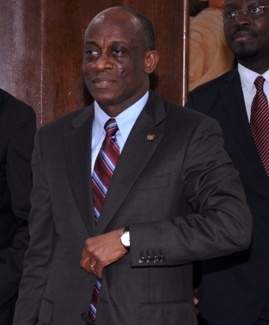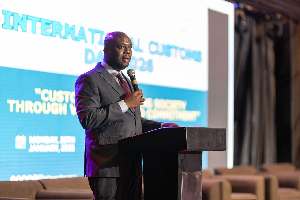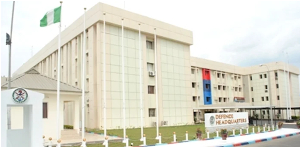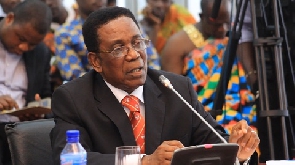The much criticized economic strategies of Finance and Economic Planning Minister, Seth Terkper, appear to have started manifesting visible results as the Ghana cedi gained considerably against its international trading currencies such as: US dollars, the European Euro, the British Pound Sterling, among others.
For few weeks now, the cedi had stabilized significantly from its previous volatile depreciation against the international currencies as the Finance Minister’s recent crusade to invite the International Monetary Fund (IMF) to help stabilize the Ghanaian economy and the recent multi-billion dollar Eurobond has been hailed as the main reasons why the cedi has stabilized in the past couple of weeks.
According to Dr. Kwame Agyei, an economics lecturer in one of the Universities in Ghana, said the trend in the cedi’s performance has a direct correlation with the IMF and the Eurobond, adding that investor confidence has been renewed in the Ghanaian economy.
The local currency which was selling at Forex bureau at about Ghc3.9 cedi to the dollar; Ghc4.9 to the Euro and Ghc5.7 to the pound sterling, all through last month and previously, suddenly made a u-turn, trading at about Ghc3.0 to the dollar, Ghc5.2 to the pound sterling and Ghc3.9 to the Euro.
The situation has sent excitement through the business community which was virtually crumbling under the weight of high exchange rates against the local currency.
Re- echoing the views of the business community, Joseph Paddy, the Public Relations Officer of the Ghana Union of Traders (GUTA) explained to GBC radio on Tuesday night that the cedi’s gains against the international currencies has brought back confidence in the Ghanaian economy.
“We thank God it [the cedi] has stabilized…it will bring back confidence in the economy,” Mr. Paddy stated.
Despite the criticisms Mr. Terpker last two weeks, led the country to its most successful Euro-bond issue with a plan to raise US$1.0 billion but ended up in an over-subscription of up to US$ 3 billion.
Apparently, Mr. Terkper and his team pulled this bond off because they were able to convince investors about the positive economic potentials ahead of the country, indicating investors’ growing confidence in the economy.
Mr. Terkper, at the end of the pricing of the latest Eurobond in New York said, “Investors saw fundamental long-term value in the Ghanaian economy. We have always emphasized that the mid-term prospects for Ghana were bright and with the coming on board of the IMF, we hope to come out of our short term challenges pretty soon.”
International rating magazine; Forbes, in its September 8, 2014 edition described the country’s current achievements as “rock-solid social, institutional and economic fundamentals the rest of West Africa strives to emulate.”
According to Mr. Terkper, about US $ 750 million from the bond was earmarked for capital expenditures, refinancing of loans and counterpart funding requirements, while the remaining US $ 250 million would be used to provide seed capital for the Ghana Infrastructure Investment Fund which is scheduled to be launched in January 2015.
From the excess funds accruing from the bond issue, the government has extra funds at its disposal for more projects.
The listed projects, according to economists, are likely to give the Ghana cedi further strength against its international trading currencies.
The recent performance of the economy has “driven a nail into the coffin” of the grand scheme grand scheme to get Mr. Terkper out of the Finance Ministry and to be replaced by former Finance Minister, Dr. Kwesi Botchwey in a “backdoor” strategy, sources close to Mr. Terkper have told this newspaper.
This is not the first time that subtle measures have been adopted to push the current Finance Minister Seth Terpker to relinquish his post, but President John Dramani Mahama has been unequivocal in his endorsement of his Finance Minister, saying he has confidence in Mr. Terkper to turn the challenging economic situation around.
General News of Thursday, 25 September 2014
Source: The Republic
Terkper vindicated as the Cedi significantly gains value

Entertainment











